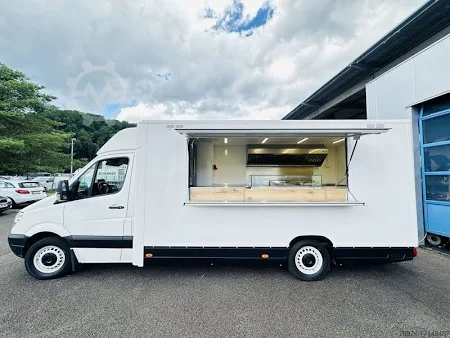Starting a food truck is not just about cooking delicious meals—it’s about taking your passion on wheels and sharing it with the world. If you’ve ever dreamed of owning your own mobile restaurant, now is the time to hit the road. You can turn your food truck dreams into reality with the right planning, supplies, and enthusiasm.
Here’s a fun, step-by-step guide to get you rolling!
1. Discover Your Flavor: Choose Your Niche
I love this part of the process! Every great food truck has a unique personality, and the first step to success is figuring out what sets your truck apart. Do you want to specialize in gourmet burgers, vegan tacos, or fusion dishes? Whatever you choose, make sure it excites you—because that passion will resonate with your customers.
Pro Tip: Try to fill a gap in your local market. Research what other food trucks in your area are offering and find a way to stand out.
2. Write Your Roadmap: Plan Your Business
A solid business plan is crucial for any food truck start-up. Outline your vision, budget, target audience, and pricing strategy. Don’t forget to include catering options in your business model! Food trucks are perfect for events, and offering catering services can expand your business opportunities.
Key Points to Cover:
- Startup costs (truck, permits, catering supplies, and food storage)
- Daily operating costs (fuel, ingredients, and staff)
- Marketing strategies (social media, community events, partnerships)
3. Get Rolling: Find Your Food Truck
The next big step is choosing your truck. You can buy a new or used truck or even lease one to start. Ensure the truck has enough room to store all your catering supplies and kitchen equipment.
4. Catering Essentials: Stock Up on Food Storage and Serving Supplies
Having the right supplies for both storing and serving your food is vital. Food trucks often double as mobile caterers, so you’ll need to be equipped for different events. Here’s what to focus on:
Food Storage Supplies:
- Refrigeration Units: Ensure adequate fridge space for perishable items, especially if you’re doing catered events.
- Coolers & Insulated Bags: Keep your ingredients fresh, even when you’re on the go.
- Food Containers: Efficient storage and easy access are key, especially in a small truck kitchen. I use https://cmjjgourmet.com/ products to keep my food fresh.
- Catering Hot Boxes: These portable, insulated boxes keep food warm and ready to serve at catering events.
Serving Supplies:
- Biodegradable or Recyclable Plates & Cutlery: Keep your service eco-friendly by using disposable supplies that align with sustainability trends.
- Custom-Printed Napkins and Containers: Branding is important! Customize your packaging with your logo or fun designs.
- Condiment Holders: Neat, easy-to-use containers for sauces and sides will keep the flow efficient and mess-free during busy times.
- Chafing Dishes & Buffet-Style Setup: For catering events, having the proper setup for self-serve options is necessary.
5. Get Licensed: Permits and Regulations
No matter where you are, there are always health and safety regulations you need to comply with. Start by obtaining the necessary permits and licenses for your area. This may include food handler’s permits, a health department inspection, and parking permits.
Pro Tip: Familiarize yourself with food safety standards for storing and handling food, especially if you offer catering services.
6. Start Your Engines: Marketing and Building Your Brand
Your food truck needs to be as eye-catching as your menu. Create a logo representing your brand and ensure your truck is brightly colored and easily recognizable. Social media is your best friend here—start posting behind-the-scenes content, menu updates, and location info to get people excited.
Ideas to Stand Out:
- Collaborate with local events or festivals.
- Host a launch event with free samples.
- Offer a catering service for weddings, corporate events, and parties.
7. Get on the Road: Finding the Right Locations
Finding the right spot for your food truck is key. Scope out high-traffic areas like business districts, parks, or near popular nightlife spots. You can also connect with local businesses and events to provide catering.
Pro Tip: Rotate your locations to reach different audiences. Always announce your whereabouts on social media!
8. Expand with Catering: Take Your Business to the Next Level
Once your food truck is up and running, offering catering services is a natural next step. The right supplies, like food storage and serving equipment, will make catering a breeze. You can cater for private events, corporate lunches, and weddings—all while spreading the word about your business.
Conclusion: Ready, Set, Go!
Starting a food truck may seem overwhelming, but it’s a fun and rewarding journey with the right approach. From choosing your menu to loading up on catering supplies, each step gets you closer to living your dream. So fuel your passion, hit the road, and watch your food truck become the talk of the town.

